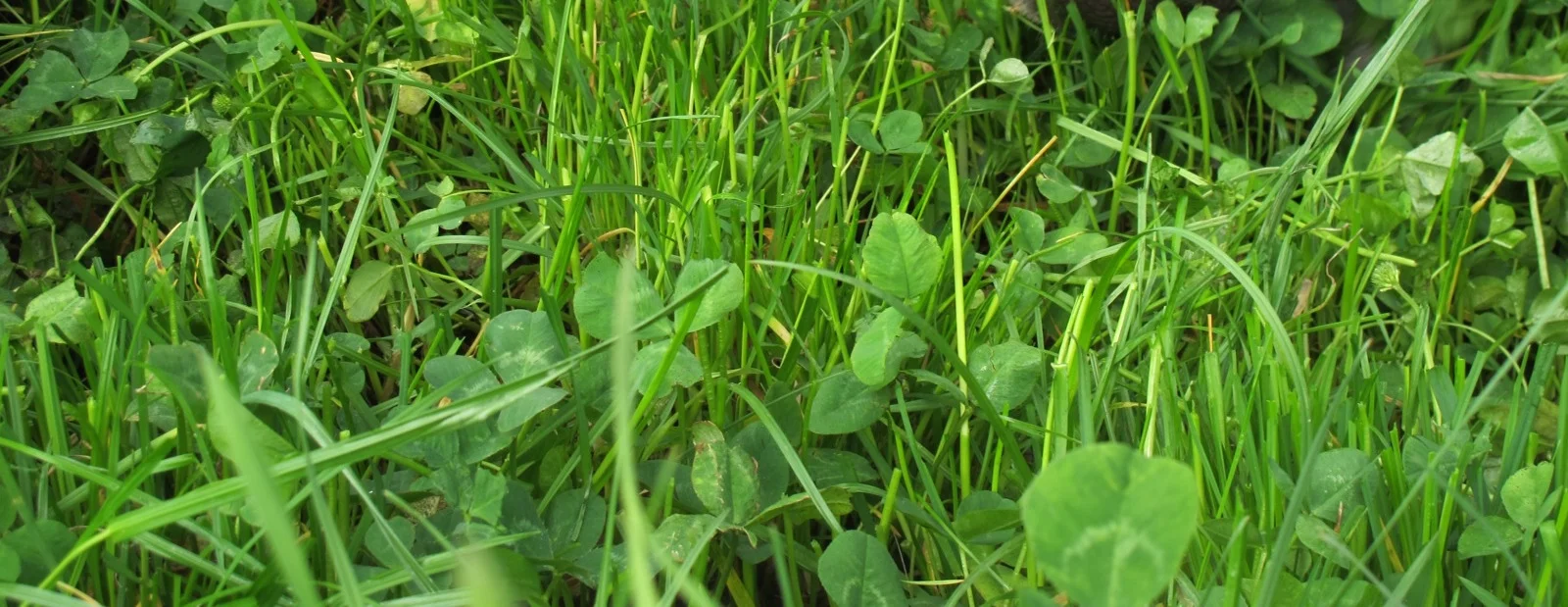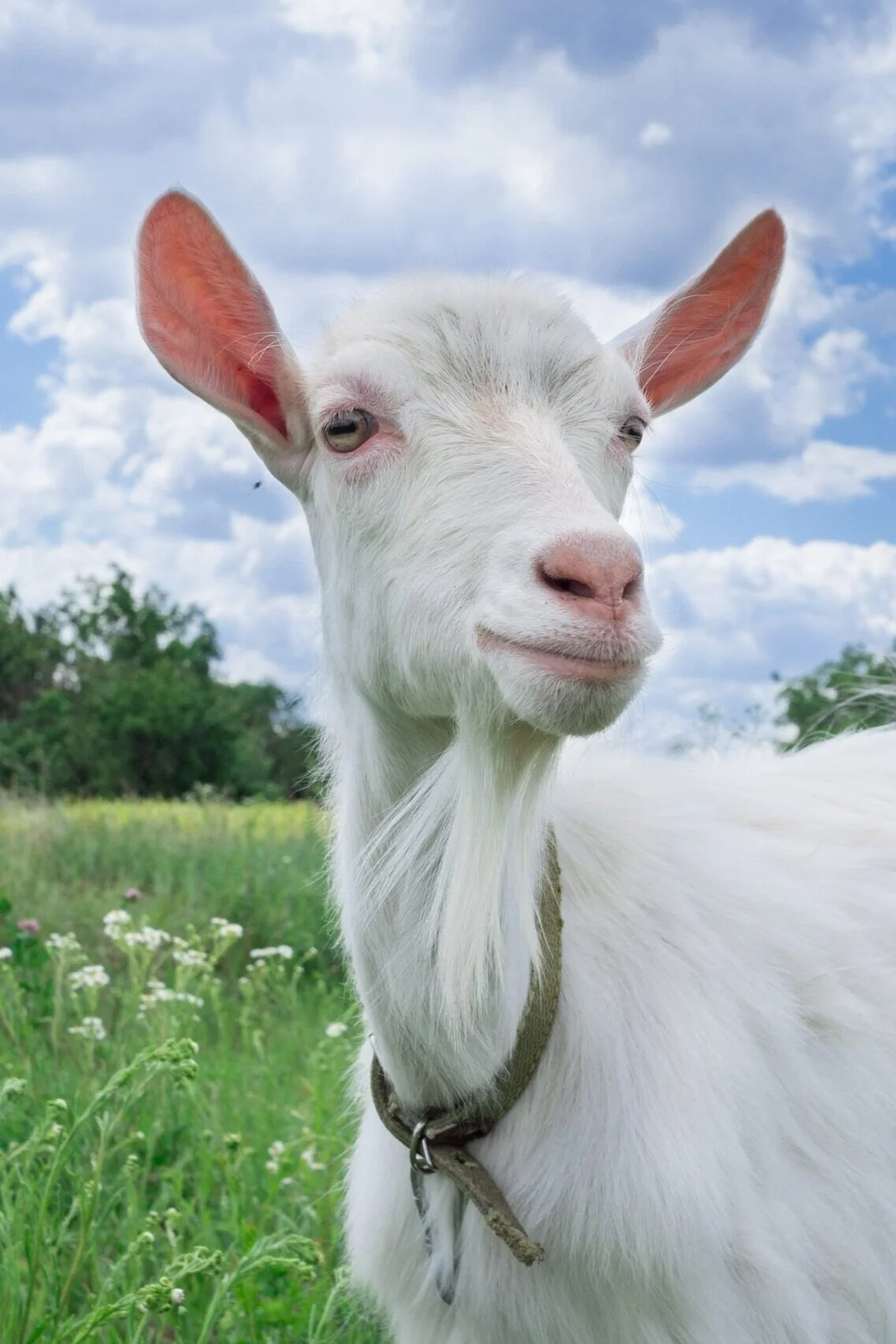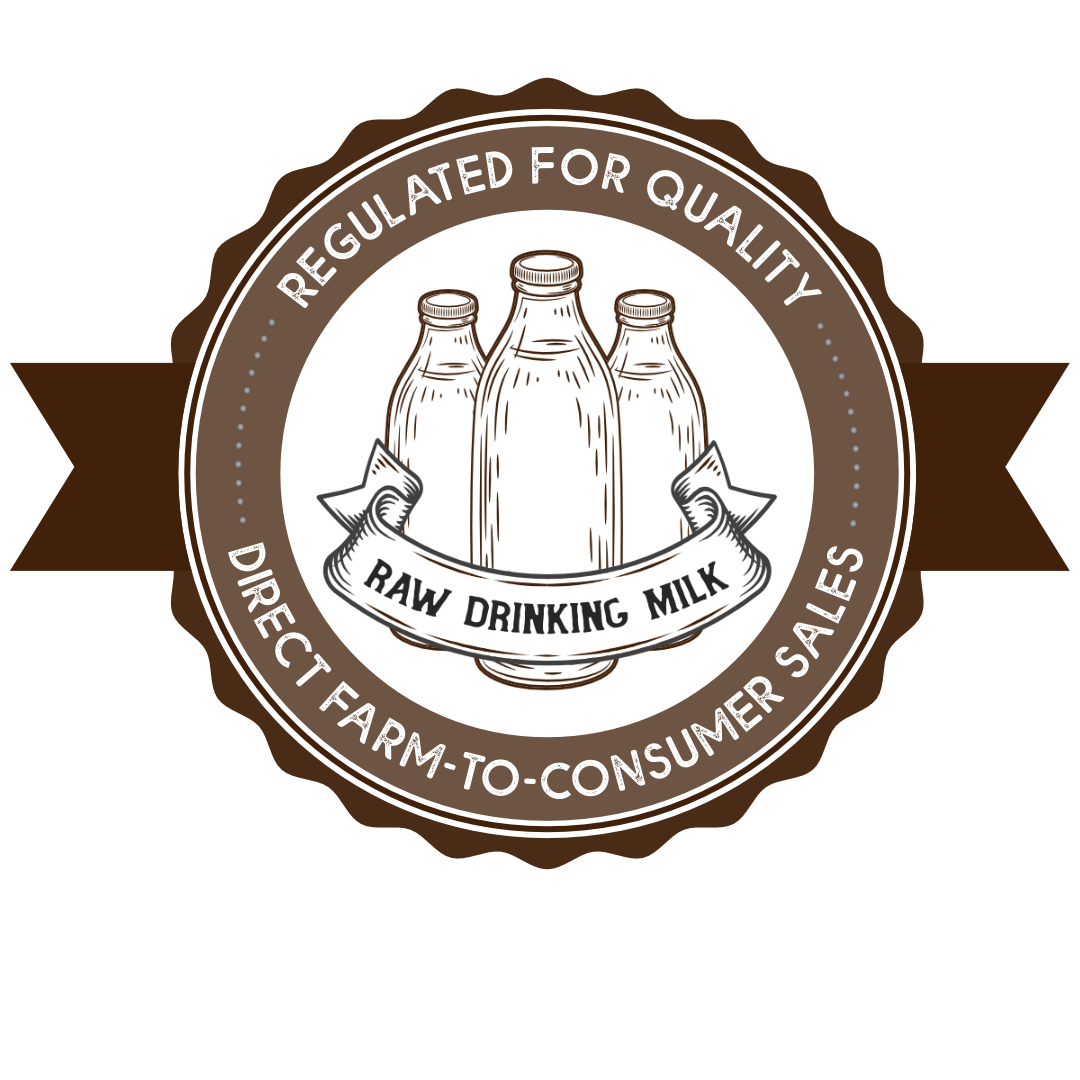The last two weeks had some interesting news headlines about raw milk.
Raw goat milk is available in Victoria from NSW.
As processed cow milk becomes less popular, some dairy farmers are turning to the 'safe raw milk' market, to save an industry that’s been in free fall for decades in the US.
In the last two months, two major US dairy companies — Dean Foods and Borden Dairy Co. — have filed for bankruptcy. These are two of the largest milk processors.
In New Zealand, raw drinking milk producers continue to flourish selling direct to customers despite challenges.
New raw milk vending machines continue to dot the English countryside.
New enhanced raw milk regulations for England & Wales are in the final stages of completion.
The Scottish government made large investments in growing ethical dairy that sees cows and calves stay together for longer. Raw milk cheese production makes this viable.
Raw milk researcher Ton Baars from Utrecht University explained in this article: "Our research shows that people who drink one glass of raw milk kefir per day experience a clear improvement in their health."
"Today we live in a much too clean environment," Ton said. "As a result, we have a lack of bacteria. The raw milk kefir is chock full of living bacteria. We notice that people who take these types of products close the intestines better, that the intestinal flora improves and that fewer harmful substances end up in the blood. Those people are going to feel better."
There are testimonies from six people who swear by the raw milk kefir, as making a difference to their eczema, bladder infections, burnout, depression, severe stomach complaints etc.
Raw milk has been available overseas for many decades, however, the Australian media ensure that public discussions on the subject remain sparse. Some Australians don’t even know what raw milk is, and others have no idea that there is more than one kind of raw milk. Older generations tend to have vivid memories about enjoying milk directly from the house cow or the vat, but age groups like urban millennials tend to be clueless. Many migrants to Australia grew up drinking raw milk and find the situation here very strange. We hear from them often when they contact us looking for a source of REAL MILK.
Recently raw goat’s milk in Victoria was on the agenda during an ABC Melbourne Radio Drive program. Here at ARMM we have explored in great detail various subjects related to the production, distribution and consumption of raw drinking milk (RDM). After 5 years of advocating for RDM access, it can sometimes be challenging to revert to a time when we did not know much about the subject. Some may find this hard to believe, but it is actually challenging at times, to come to terms with how little some people know about this subject…
Raw milk discussion on ABC Radio
ABC’s Sami Shah - who is a Pakistani-Australian radio presenter, comedian and writer - recently interviewed co-owner of Jannei Goat Dairy in Lidsdale, NSW, Australia on the 15th of January 2020. It was incredibly interesting. Sami is concerned that raw milk is finding its way to Victorians “via a loophole”. He says that raw milk potentially contains listeria, ecoli, and all sorts of dangerous health threats. Earlier this week it was announced that Pakistani authorities are demanding a raw milk ban by 2022 due to poor quality in the region. According to this article, only 10% of Pakistan’s total milk consumption is processed milk, and 90% is raw milk, which comes straight from the cows or buffaloes in the market.
Sami seems to be one of many who don’t understand that many modern industrial farming practices produce pathogens in the environment and food supply, which results in an increased need for sterilisation methods and pasteurisation. Small, independent dairies can farm differently, and some are able to produce food like raw milk that is pathogen free.
There are two kinds of raw milk: one is produced with the intention that it will be pasteurised, and another is produce with the intention that it will be consumed raw. They are two different production systems, with different sets of values, expectations and outcomes.
Raw cow milk sales and consumption in Australia are illegal, but ‘bath milk’ sales do occur in some places. Those who own the animal, however, can enjoy its raw milk without restrictions. Raw goat milk is permitted to be sold for consumption in NSW, Queensland, South Australia and Western Australia. Jannei Goat Dairy is licensed with the NSW Food Authority, and according to the interview, they have been licensed for 25 years.
Audio: Interview with Jannei Goat Dairy, 15 Jan 2020 (source)
Jannei Goat Dairy in NSW
Janette and Neil Watson started Jannei Goat Dairy near Lithgow, NSW nearly 30 years ago. They are very proud to be one of a few Australian producers allowed to sell raw milk products. Janette says that the milk is an achievement; it has taken 20 years to work out how to keep the plate counts down, and e-coli out of their milk. Jannei raw goat milk won gold at the 2016 Sydney Royal Easter Show ( and silver in 2020). The milk is delicious and the low coliform count difference can be tasted. It has a very long shelf life when kept at under 4’C. According to another article, they milk about 150 mostly Saanen goats (the white ones of Swiss origin), and make a variety of products, like the raw drinking milk, fresh cheese, cream, white mould cheese, semi-hard aged cheese and yogurt. Raw milk currently sells for $9.95 via the online store. New South Wales is currently experiencing one of the worse droughts, and this dairy is not immune to the challenges, despite being small and more sustainable than most dairies in Australia. www.jannei.com/
Raw milk sale loophole? Raw milk in Victoria?
On the same day, The Weekly Times published the article about raw milk for human consumption being sold to Victorians legally, from NSW. The reason why this is contentious, is because raw milk for human consumption in Victoria is only allowed if you own the animal, due to regulations passed shortly after Christmas in 2014, that require a gagging agent be included to deter consumption. Janette told The Weekly Times that “Trade law allows us to still sell directly to Victorian consumers online”. “We spend about $5000 a year on complying with strict regulations and hygiene practices, including testing every 20 batches of milk to ensure it is clean.” Read the online article here, or see the image below.
Image: from the Weekly Times dated 15 January 2020, click to enlarge.
A The Weekly Times Raw Milk Poll:
The Weekly Times also created a ‘poll of the week’ on the subject. This author last checked on Saturday and the votes from nearly 450 people were 91% in favour of allowing raw milk in Victoria.
Image: a snapshot of the The Weekly Times post on Facebook.
Ebuta Goat Dairy in Queensland
Ebuta Goat Farm is about 29km from the center of Townsville. Brian and Jean Venten keep pure bred white Saanen milking goats on their 50 acre property at the foothills of Mt Elliott National park. Watch this 2016 video about the dairy. They are currently accredited to sell to the public raw goat milk, ice cream (gelato) and cheese products.
Also watch the video below in which Brian Venten explains their processes, and how they are tapping into the tourism industry. According to their Q&A website, Ebuta Goat Dairy is an accredited dairy through Safe Food Production Queensland. SFPQ is the Qld State Gov body that regulates the manufacture of food products in Qld to do with dairy, meat, eggs, seafood and plant and plant products. Under the Food Standards Australia and New Zealand (FSANZ) each Australian state is allowed to regulate
the sale of RAW goat milk. Currently Qld, NSW, SA, WA are the only states that allow for the sale of raw goat milk for human consumption. There are three licensed raw goat milk dairy’s in Qld and Ebuta Goat Dairy is one of them. Their license requires that the milk and dairy products be regularly tested for the presence of any microbial contaminants including TPC (total plate count), coliforms, E-coli, campylobacter, salmonella, and listeria. On top of these official tests, Ebuta also has their own internal laboratory where milk is tested daily to assess the quality of both the milk process and the milk product. Ebuta also do daily TPC’s and Methylene Blue dye tests. The milk is sold in small retail stores around Townsville and Cairns. This author has personally sampled and purchased Ebuta raw milk on a number of occasions. www.ebutagoats.com.au
Bookara Goat Dairy from Western Australia
Cate and Mark Weston run Bookara Goat Dairy in Rangeway, Western Australia with predominantly Saanen, Toggenburg and British Alpine breeds. The farm is between Dongara and Geraldton. The 400 milking goats are milked just once a day. With the help of a Federal Government subsidised loan they were able to buy state-of-the-art milking equipment in 2015. Bookara specialised in goats curd, Persian and pressed feta, Haloumi, ricotta, drinking yoghurt and fresh milk. In the interview below, Mark was asked who his customers were, and the rules about raw goat’s milk. www.bookaragoatdairy.com.au/
Audio: Interview with Mark Weston, 20 May 2015 (source)
Tidbits on raw goat milk in Australia:
Regulated raw goat milk has been available for many years. Raw goat milk is permitted to be sold for consumption in NSW, Queensland, South Australia and Western Australia.
Jannei raw goat milk won gold at the 2016 Sydney Royal Easter Show.
Raw milk cheese is made from cows milk, sheep milk, goats milk in Australia.
Ebuta Goat Dairy have been operating in Queensland for many years and sells in retail stores.
Bookara Goat Dairy sells from Rangeway, Western Australia at three farmers markets etc.
Marlee-May farm sells at farmers markets in NSW.
Food Standards Australia New Zealand - Microbiological Risk Assessment of Raw Goat Milk 2009.
Why are authorities still saying that raw milk is potentially unsafe?
These two articles describe why Food Standards Australia New Zealand’s 2009 risk assessment on raw cows milk isn’t credible:
The report does not distinguish between data from factory milk suppliers, and data from regulated small-scale dedicated raw milk producers. The report is outdated and only weakly based on high quality, relevant, and representative data. Scientific and technological advances in the decade since preparation of this report have overtaken FSANZ’s approach, the assumptions used, and its conclusions.
Many are still basing their decisions about raw milk on an outdated FSANZ 2009 risk assessment of raw cows milk, however, in the same year they seem to have found that raw goat milk can be allowed for sale when produced under quality controls. See the Microbiological Risk Assessment of Raw Goat Milk 2009. Why do some continue to say that raw milk may be unsafe, when no food can be produced to be 100% safe? All food has some risk, however, that risk can be mitigated with quality controls. ARMM has already demonstrated that raw drinking milk can be done well (from cows and goats), and that there is huge demand for it. The Australian dairy industry is on its knees, and may continue to decline. There is an opportunity to enable some small-scale dairy farmers to diversify and produce a niche product under quality controls. Make it so. Also see the Risk Assessment Management Plan page and the Risk Identification and Risk Reduction page for more details on how the risks of raw drinking milk can be successfully mitigated. Dairy farmers don’t automatically know how to produce raw milk for human consumption. Food safety plans, some training and an understanding of how to mitigate risks are required. Healthy animals with healthy rumen microflora are an essential start. In other words: there is a difference between producing raw milk meant to be pasteurised, and producing raw milk meant to be consumed raw. There are two kinds of raw milk.
This document from the B.C. Fresh Milk Project shows a measurable effect that Raw Milk Institute training has on the quality of raw milk. The science shows “up to 24% of milk intended for pasteurization contains pathogens, whereas carefully produced raw milk is very unlikely to contain pathogens”.
Some in the processed dairy industry seem to prefer that consumers not be able to buy any kind of raw milk, out of fear that the processed milk industry’s “image” could be harmed. Consumers continue to contact us asking for raw milk. Many consumers cannot consume or tolerate processed dairy. We believe that raw milk systems must be strict and fair, but must also be sanitised from over-the-top and unfair regulations.
Consumer preference, public health and food safety can be respected.
A production system that has integrity will deliver for consumers and dairy farmers. Not all raw dairy systems that exist globally are equal. Some leave potential room for error, and others are not regulated for quality at all. Some countries like Pakistan seem completely unable to produce raw milk for human consumption anymore, in which case it may be better to pasteurise the milk.
Why do consumers want raw milk and the beneficial microbes in it?
Many of Australia’s dairy farmers consume their raw milk straight from the vat and have no problems doing so, as Australian dairy microbiologist Dr Ron Hull explained in this article. However, many city dwellers today are not accustomed to the microflora in raw milk, partly because they eat a lot of processed and sterilised food, and as a result may be somewhat immune compromised. Research show that we need regular beneficial microbes in our diet to prime the immune system and keep us healthy. Urban Australians need raw milk of high quality, tested and produced under quality controls. Probiotic microbes act like healers, and are very powerful and protective once they colonise a terrain and outcompete the potentially harmful.
The foreign-owned companies involved in the Australian dairy industry
Last but not least, we must consider the people, conditions and culture that we are engaged with. Profit, influence and power are important to those who have purchased assets in Australia, and expect a return on investment. Politicians and the media are under pressure to keep these multinational corporations in business. These large companies don’t care about the Australian consumer’s preference for raw drinking milk. They benefit financially from having a near monopoly on raw milk from cows in Australia.
Earlier this week a much loved dairy in Queensland slammed the State Government after missing out on a tender to supply products to some of Queensland’s largest hospitals. In the video below, Maleny Dairies criticised the Qld government for talking about promoting local food, but not acting in the best interest of ‘local’, and helping struggling farmers survive. Despite a promise to support locals, the tender for Metro-North hospitals went to French and Chinese owned companies. See this article.
“It’s a kick in the guts. What’s the confidence in our local farmers now?” - Maleny Dairies, Ross Hopper.
Raw goat milk seem to be able to operate in Australia in peace - as long as it stays relatively below the radar - but raw cow milk is another story. However, keeping the status quo in place in a fast changing world is going to get increasingly challenging. It’s time for new systems, and for satisfying consumer demand for an immune system boosting food.
We hope that some questions have been answered on this complicated and often mysterious subject.
Edit: here is the results of the poll
On Wednesday morning there were more than 700 votes and 93% in favour.
Related Articles:
As cow milk becomes less popular, some dairy farmers are turning to the 'safe raw milk' market
Loophole lets Victorians buy raw milk
JANETTE WATSON - JANNEI GOAT DAIRY
WA dairy owner says demand for raw goat milk strong
WA goat dairy gets Farm Finance Concessional Loan funding for new equipment
Mark Weston from Bookara Goat Dairy speaks about receiving a loan to buy new milking equipment
Galloping goat prices continue to soar
Helping out with goats: From udder to market
‘Made us look like fools!’: Aussie dairy snubbed by QLD government
The microbiome and the effect of antimicrobials in food production
Proposal P1007 - Primary Production & Processing Requirements For Raw Milk Products
Food Standards Australia New Zealand - Microbiological Risk Assessment of Raw Cow Milk
Food Standards Australia New Zealand - Microbiological Risk Assessment of Raw Goat Milk 2009
Food Standards Australia New Zealand - Microbiological Risk Assessment of Raw Milk Cheese
Could the Raw Milk Boom Be a Lifeline for Struggling Farmers?








